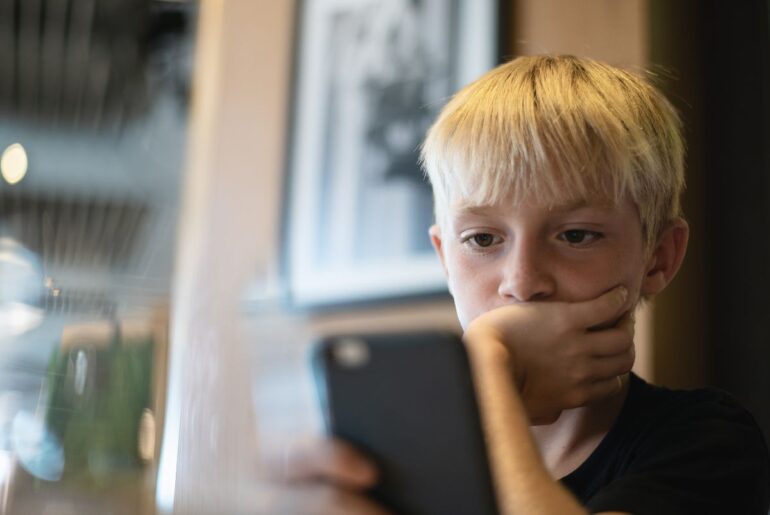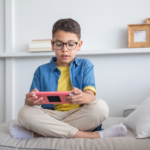When kids have smartphones before the age of 13, they’re likely to exhibit suicidal thoughts, decreased emotional regulation skills, lower self-worth, and even detachment from reality, says a recent study published in the Journal of the Human Development and Capabilities.
In fact, the study showed that the earlier in life kids were given smartphones before age 13, the worse their mental health and well-being were likely to be. The negative effects were even more pronounced in girls than in boys. The girls in the study who had gotten their first smartphone at age 5 or 6 were the worst off, with a whopping 48 percent of them reporting severe suicidal thoughts. That’s compared to 28 percent of the girls who had gotten their first smartphone at age 13 reporting severe suicidal thoughts (still a concerning number).
The study, conducted by Sapien Labs, surveyed nearly 2 million people in 163 countries, and concluded that younger kids who had smartphones were more likely to use social media, to suffer sleep disruptions, to experience cyberbullying, and to have negative family relationships.
Therefore, the researchers strongly caution parents and caregivers not to give smartphones to kids under the age of 13, and called for stronger global regulations to prevent younger children from using smartphones and social media.
How parents can navigate the pressure to get kids smartphones
Many parents let their kids have smartphones or social media accounts earlier than the teen years because of social pressures to do so. A ParentsTogether survey found that 1 in 3 parents didn’t feel ready for their child to have a phone when they bought them one.
To combat those social pressures, child development experts recommend turning to a group like Wait Until 8th, in which parents pledge together to wait until at least the end of eighth grade to let kids get their own smartphone. Another solution is to agree with a group of parents in your community to invest in an alternative communication method such as landlines or simpler flip phones without internet access.
Be sure to read our guide to your child’s first phone for a list of what to consider before getting your kid a phone, plus some less addictive alternatives to smartphones. If your child already has a cell phone, it’s not too late to use our guide to setting clear and healthy boundaries on phone use.
Melissa Greenberg, PsyD, a clinical psychologist in New Jersey, encourages parents to be open to making changes to their phone policy at home. She told CNN that parents can use a script like this with their kids:
“When we first gave you your smartphone, there were things we didn’t know about how it might impact you. There are a lot of scientists and doctors who are doing research on the effects smartphones are having on kids, and we’re learning a lot more than we knew before. We have to make some changes because we want to make sure that we’re doing the healthiest thing for you.”
Remember that even if smartphone and social media use seem inevitable in this day and age, delaying their use until later in the teen years can have a significant positive impact on your child’s mental health!







